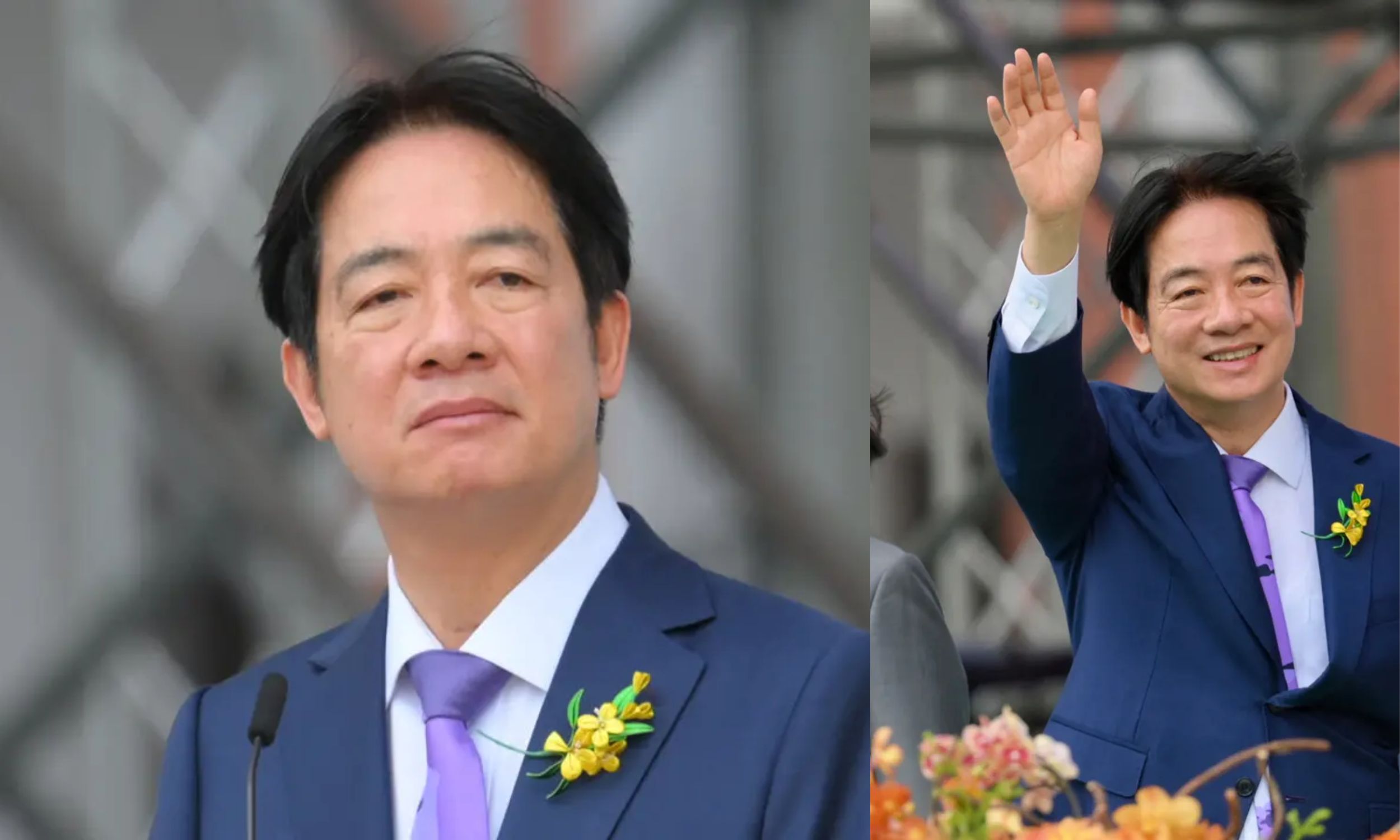Taiwan’s President Lai Ching-te urged Beijing to halt its intimidation of the democratic island following his inauguration on Monday. This event marked the beginning of an unprecedented third consecutive term for the ruling Democratic Progressive Party (DPP), which has steadfastly defended democracy against escalating threats from authoritarian China.
Lai, 64, a former doctor and vice president, was sworn in alongside Vice President Hsiao Bi-Khim, who previously served as Taiwan’s top envoy to the United States.
Both leaders and their parties are openly opposed by Beijing, which claims Taiwan as part of its territory despite never having controlled it and has threatened to annex the island by force if necessary.

In his inaugural speech, Lai emphasized a message of peace and declared a new era for Taiwan’s democracy, describing the island as a crucial link in a global chain of democracies and reaffirming the determination to protect its sovereignty. “The future of the Republic of China Taiwan will be decided by its 23 million people,” Lai asserted, using Taiwan’s official name.
Lai succeeds Tsai Ing-wen, who enhanced Taiwan’s international profile during her eight years in office. Tsai, Taiwan’s first female president, was ineligible to run again due to term limits.
Lai triumphed over opponents from the Kuomintang (KMT) party and the Taiwan People’s Party in January’s election, which revolved around domestic issues and the complex relationship with China.
In his speech, Lai called on China to end its political and military intimidation, share global responsibilities for peace and stability, and ensure a world free from war fears. He urged China to acknowledge Taiwan’s existence, respect its people’s choices, and cooperate with Taiwan’s government.
He proposed resuming tourism and student exchanges as steps towards mutual prosperity, but cautioned that even full concessions to China would not quell its annexation ambitions.
Lai’s inauguration was attended by leaders from countries maintaining formal diplomatic ties with Taiwan, former American officials, and international lawmakers.
U.S. Secretary of State Antony Blinken congratulated Lai, emphasizing continued cooperation to maintain peace and stability across the Taiwan Strait.
Lai takes office amidst heightened tensions between Taiwan and China, which has increased diplomatic, economic, and military pressure on the island.
He inherits a fraught relationship, with Beijing portraying him as a provocateur and framing the elections as a choice between peace and war. China’s Taiwan Affairs Office criticized Lai’s inauguration, accusing him of inciting independence and destabilizing the region.
Lai, who once supported Taiwan’s independence, now maintains that Taiwan is already an independent, sovereign nation with no need to declare independence.
This nuanced stance mirrors that of his predecessor, Tsai Ing-wen. Despite this, China has repeatedly rebuffed Lai’s offers for dialogue, labeling him a separatist.
Lai faces challenges in implementing his agenda, lacking a parliamentary majority after the DPP secured only 51 of 113 seats in January’s election. This political division was evident last Friday when a brawl erupted in parliament over contentious reform bills, highlighting the difficulties ahead.
In his address, Lai called for unity and cooperation to navigate Taiwan’s challenges and maintain a stable path forward. “A lack of absolute majority means that the ruling and opposition parties are now all able to share their ideas,” Lai said, advocating for a collective effort to steer Taiwan through its future trials.


